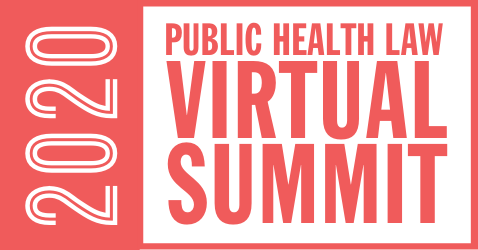|
Nationwide, state and local public health officials working to protect the public from COVID-19 are on the receiving end of threatening and harassing conduct for simply fulfilling their duty to protect the public health. In response, the Network examined whether states and Washington, D.C., have criminal statutes to address individuals who impede public health officials’ duties with such behavior. This 50-state resource outlines these statutes.
Public Health Law News Roundup – November 2020 Some of the public health law and policy issues that made headlines in November include states’ public health measures for voting during the pandemic, a federal court ruling on the Trump administration’s public charge rule, the potential impact on birth control of a Supreme Court ruling on abortion, the Biden administration’s plans for responding to the pandemic, mask mandates, and state lock-downs in response to rising COVID cases nationwide. COVID-19 FAQs for Michigan Local Health Departments Michigan’s Public Health Code grants public health officials considerable discretion to protect the public against communicable disease and environmental health threats. This FAQ addresses questions regarding how state and local health departments can maintain their credibility during the pandemic; disclosure of information to the media; and whether local health department can contract with attorneys or other third parties to issue citations and civil penalties. COVID-19 Summit Session Recordings Available The 2020 Public Health Law Virtual Summit, held September 16 - 17, featured national experts’ assessments of the U.S. policy response to the COVID-19 crisis to-date and proposed paths forward to more effective and equitable response and recovery efforts. Sessions covered critical issues including voter safety and participation; health equity for marginalized communities; drug and vaccine development and access; federal, state and local emergency measures; and state preemption. Visit our Summit site and click on a session to view its recording and accompanying materials.
Worth Sharing Protecting Communities in a Public Health Crisis: 2020 Network Impact Report In the early days of the pandemic and beyond, the Network has assisted local, country, tribal and state health agencies and others with timely guidance, resources and information critical to key COVID-19 response measures. The 2020 Impact Report highlights our work in response to COVID-19 and our efforts to identify legal and policy pathways to navigate the structural challenges and inequities that have been exacerbated by the pandemic.
The Forgotten Votes of 2020 – State Ballot Initiatives Addressing Health Concerns Citizens and legislatures in nine states placed health care-related issues, including tobacco taxes and paid family leave, on their state election ballots. This chart from the National Academy for State Health Policy provides the status of each referendum and highlights the emergence of new taxes and fees to support health and other programs.
The American Association for the Advancement of Science (AAAS) has awarded KFF’s Kaiser Health News and The Associated Press one of its top journalism prizes for a joint investigation that revealed the diminished state of the U.S. public health infrastructure in the face of the COVID-19 pandemic. The AAAS gave the news organizations its Gold Award in science reporting for “Hollowed-Out Public Health System Faces More Cuts Amid Virus,” an investigation that found that the public health workforce in the U.S. is underfunded and under threat, lacking the basic tools to confront the worst pandemic in a century.
Tell Us What You're Working On.
Our law and policy experts can help you identify the key considerations central to your unique challenges and provide law and policy pathways you can leverage to make a difference.
Thank you! Your interest in the work of the Network is important. Together, we can advance law as a tool to improve public health. Please forward the Network Report and encourage others to join the Network! The Network for Public Health Law provides information and technical assistance on issues related to public health. The legal information and assistance provided in this document does not constitute legal advice or legal representation. For legal advice, readers should consult a lawyer in their state. |





